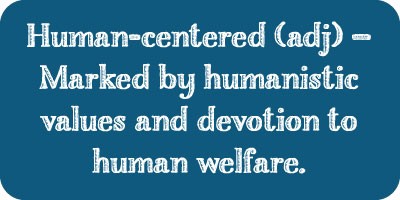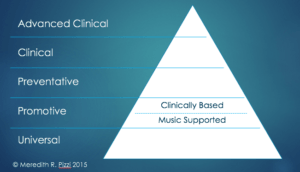As a team, we stand united behind our values about music, music therapy and human-centered care.
We Believe
- Making music transforms lives.
- Music connects people.
- Everyone can make music.
- Making music builds bridges and creates community.
- Music therapy celebrates abilities and allows us to see beyond limitations.
- Music therapy provides a safe space to be who you are.
- As music therapists, it’s our job and responsibility to make music accessible to people of all ages and abilities.
- Inclusive opportunities allow people to be music makers, to belong, to contribute, and to connect with others.
- Music making is a form of communication that fosters expression and understanding.
- Music can be used as a tool, empowering people in their daily lives.
Our Commitments
No two people are alike. At Roman Music Therapy Services, we recognize that each individual and organization we serve has unique needs. We have learned that with all things, a one-size-fits-all approach does not work!
To be grounded in the work that we do, we focus on three tenets in our work.
 1. Our human-centered approach to music therapy requires that we thoughtfully adapt our responses and music interventions to the dynamic needs of the client.
1. Our human-centered approach to music therapy requires that we thoughtfully adapt our responses and music interventions to the dynamic needs of the client.
One of our core beliefs is that as music therapists, it’s our job and responsibility to make music accessible to people of all ages and abilities. In order to this, we firmly believe that our team needs to be flexible in the approaches and interventions we use with our clients, evolving to meet the dynamic needs of each client or group as they evolve in the therapeutic process. Rather than providing one particular technique or method for music therapy service delivery, we strive to be “integral music therapists” as Ken Bruscia, a music therapy writer, teacher and clinician, suggests.
“An integral therapist stays reflexive at the macro and micro level and thinks the way the client needs him to think, not the way of thinking the therapist has already adopted” (Bruscia, 2014).
2. As community music therapists, we focus on the two-way connections between individuals and communities in all that we do to help build bridges and social capital.
“Music therapy might be described as a music therapist engaging another person or persons in some form of musicking with the ultimate aim of improving their quality of life – thus including health, wellbeing and education outcomes. Both sides of the social capital equation (the generation of social capital, and the benefits this brings) therefore have relevance for music therapy” (Procter, 2011).
When we talk about community, we are thinking about little “c” communities and big “C” Communities. A community could describe a small music therapy group, with two or three people who are loosely connected, or it could be a family unit or residential home or facility, or even an entire town incorporating all of the residents into the fabric of their community. Using the power of music, we can use live, in-the-moment music experiences to increase feelings of trust, reciprocity, security and belonging in our communities. And that is a win-win for everyone!
3. Music therapy serves our communities best with a continuum of options.
We recognize that while clinical, prescribed music therapy is beneficial and necessary for some , access to community-based, supportive services are vital to others in our community.
 Inspired by The Pyramid Model for Supporting Social Emotional Competence in Infants and Young Children and a lecture by Dr. Evan Ruud, our Founder, Meredith Pizzi, has developed a theoretical framework to understand music therapy within the context of meeting community and patient needs. Roman Music Therapy Services is moving into the new frontier of music therapy by recognizing the potential of music therapy as more than a treatment option or a field of clinical practice.
Inspired by The Pyramid Model for Supporting Social Emotional Competence in Infants and Young Children and a lecture by Dr. Evan Ruud, our Founder, Meredith Pizzi, has developed a theoretical framework to understand music therapy within the context of meeting community and patient needs. Roman Music Therapy Services is moving into the new frontier of music therapy by recognizing the potential of music therapy as more than a treatment option or a field of clinical practice.
Our innovative community programs reflect our model of care, understood through the Music Therapy Pyramid Framework. Learn more about the Music Therapy Pyramid Framework in practice.
Learn More about:
